
May 17, 2023
Confidence in the Supreme Court has significantly decreased, particularly among Democrats and pro-choice adults, according to an analysis of the 2022 General Social Survey (GSS) by The Associated Press-NORC Center for Public Affairs Research. The survey, fielded mostly in the wake of the Dobbs v. Jackson Women’s Health Organization ruling, finds confidence in the Supreme Court is at its lowest since the GSS began.
The public demonstrated waning confidence in the Supreme Court in 2021 and 2022. Just 26% reported a great deal of confidence in 2021, falling to 18% in 2022 — an all time low since the GSS began recording this data in 1973. Further, 36% had hardly any confidence in the Supreme Court – the highest recorded since the GSS began.
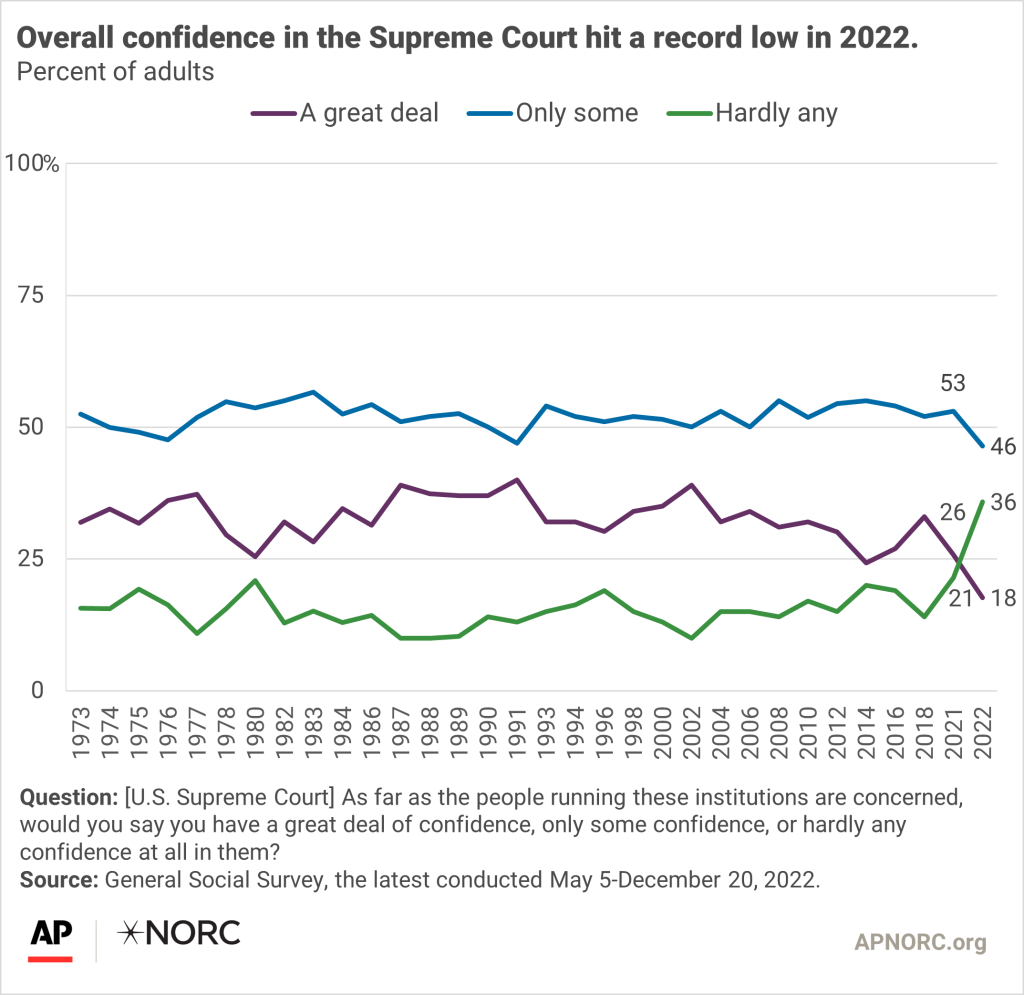
In general, relative confidence in the Supreme Court among Democrats and Republicans often shifts depending on the party occupying the White House. In 2018, Republicans reported higher levels of confidence compared to Democrats. Republicans saw a decline in confidence between 2018 and 2021 and confidence among Democrats also remained low. Even with a Democrat in the White House in 2022, Republicans continued to report a higher level of confidence than Democrats. Democrats experienced a large decline in confidence in the Supreme Court, with just 8% reporting a great deal of confidence.
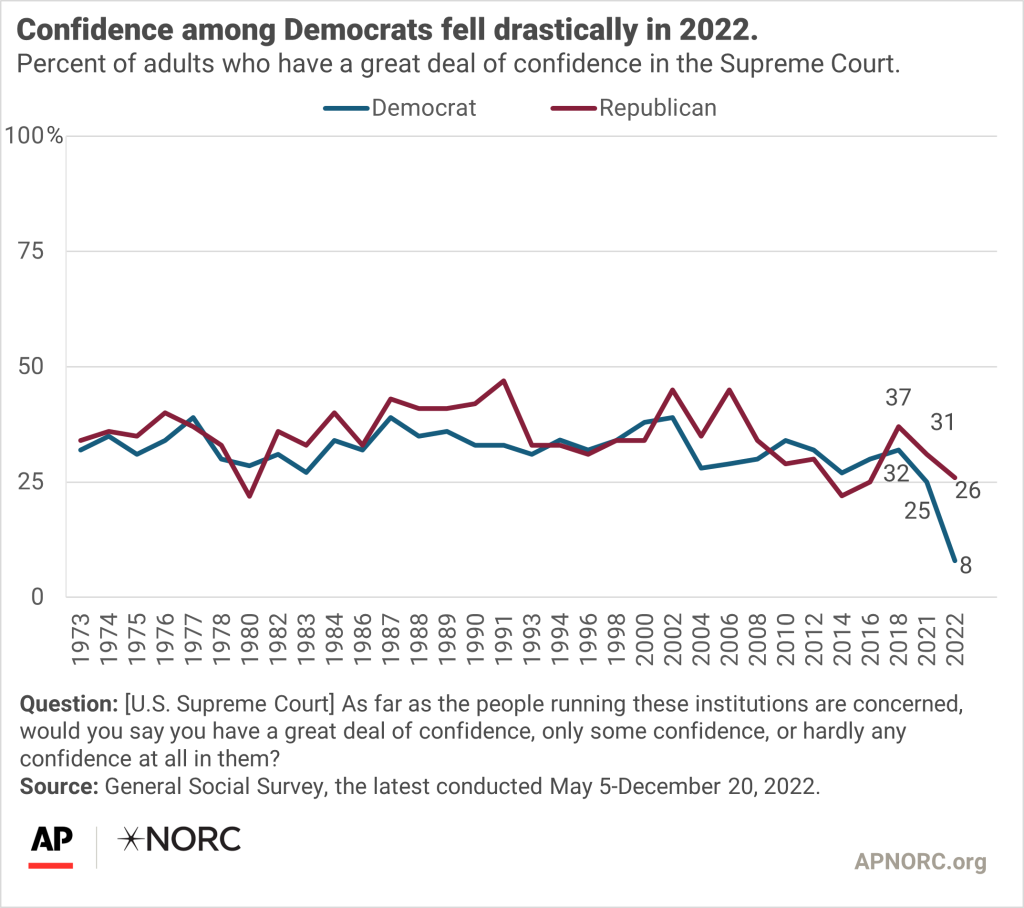
When examining whether or not a person’s abortion attitudes relate to confidence in the Supreme Court, we see a decline in confidence among those who believe a woman should be allowed to have a legal abortion for any reason. In 2022, confidence in the Supreme Court plummeted among those who believe a woman should be allowed to have an abortion for any reason, with only 12% reporting a great deal of confidence and 43% reporting hardly any, double the 21% who said the same in 2021.
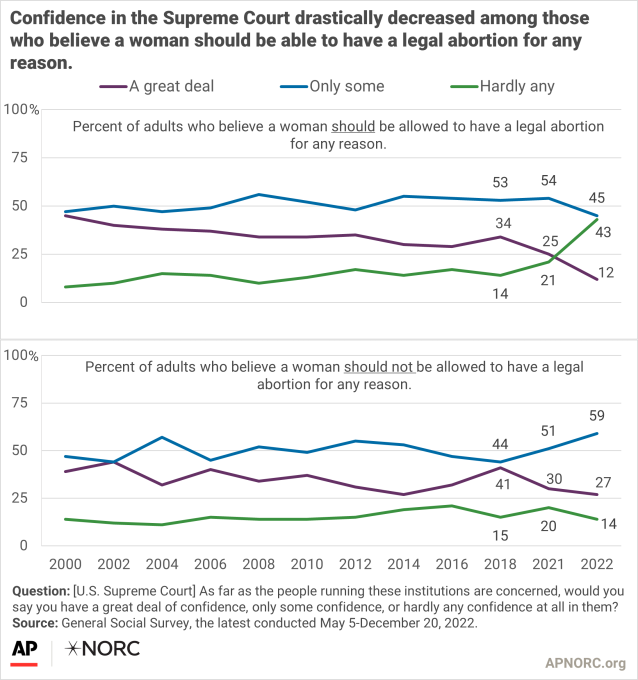
In 2022, confidence in the Supreme Court among women decreased. Not only did fewer women report a great deal of confidence compared to 2021, but women also had less confidence compared to men, widening the gap in attitudes.
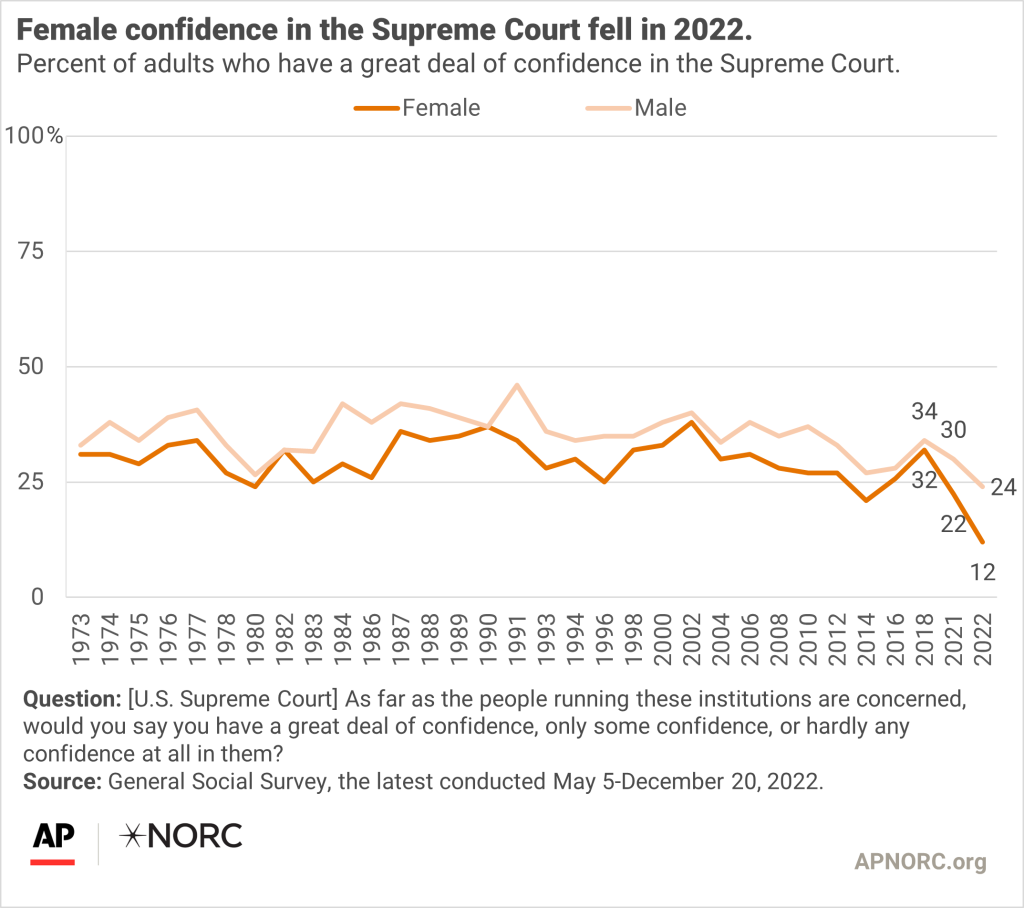
Americans were divided on whether women should be able to obtain a legal abortion for any reason. As of the 2022 GSS data, half of the public believed a woman should be allowed an abortion for any reason. This is similar to attitudes in 2021.
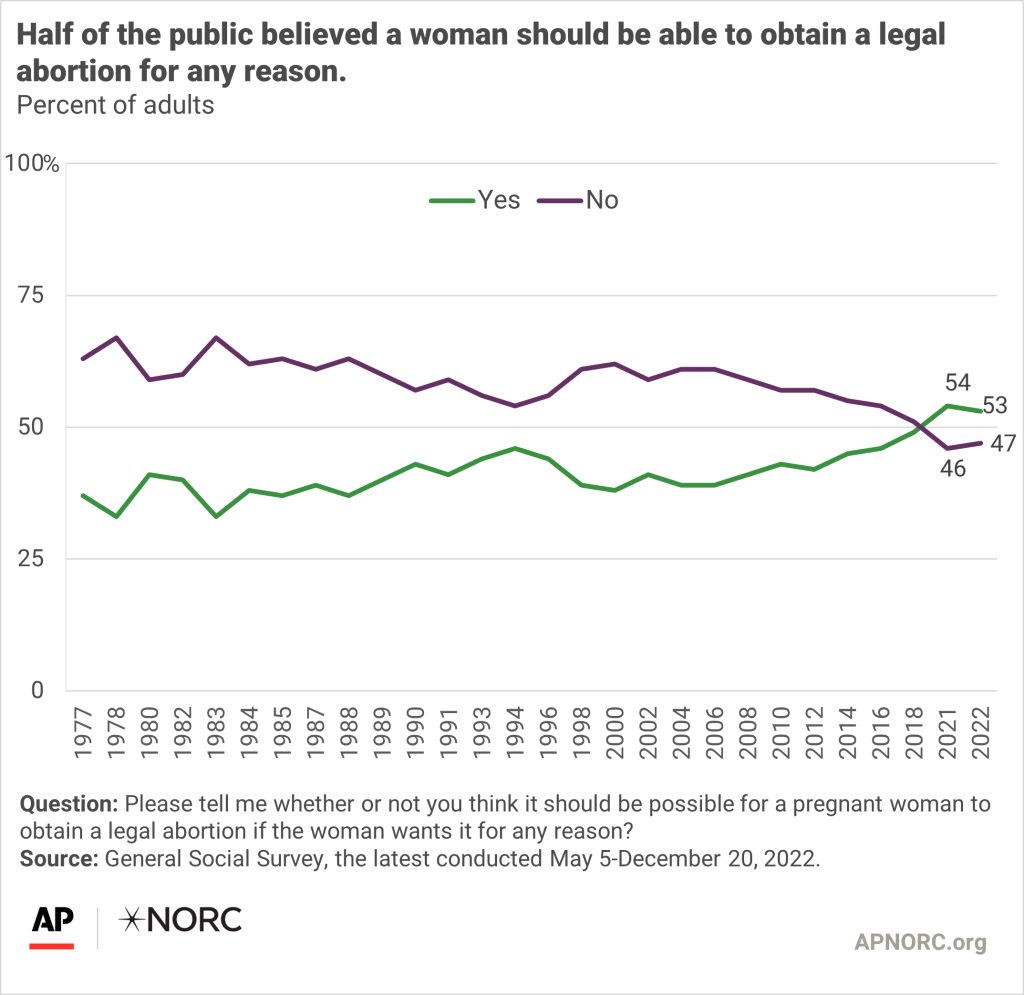
In the 1990s, partisan attitudes regarding whether a woman should be allowed to have a legal abortion for any reason began to diverge and continued to widen over time. Support among Republicans has remained fairly low while Democratic support continued to increase – 77% of Democrats supported abortion for any reason in 2022, compared to 28% of Republicans.
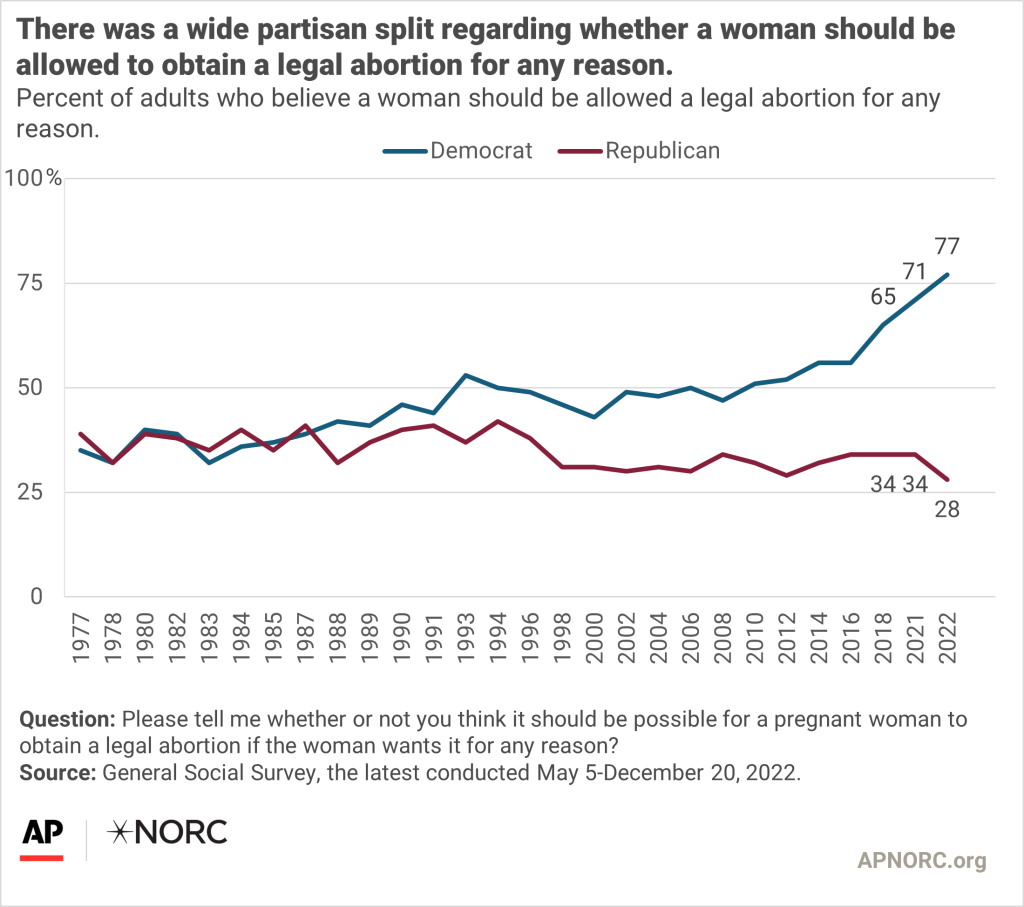
Gender splits on the issue of legal abortion largely remained consistent, with little difference in opinions between women and men. Attitudes remained steady among both between 2021 and 2022.
The General Social Survey asked respondents whether or not they support legal abortion in several scenarios. About half of the public believed a woman should be allowed to obtain an abortion if she is married and does not want more children, she is not married and does not want more children, or if the family is low income and could not afford more children. Each of these scenarios saw an increase in support between 2018 and 2021, though overall attitudes have remained consistent since. Democrats were more likely than Republicans to support abortion in each of these scenarios.
When it comes to whether or not legal abortion should be allowed if a woman is married and does not want more children, overall attitudes have remained consistent. However, the partisan gap has continued to widen between 2018 and 2022, with 83% of Democrats supporting abortion in this instance compared to just 34% of Republicans.
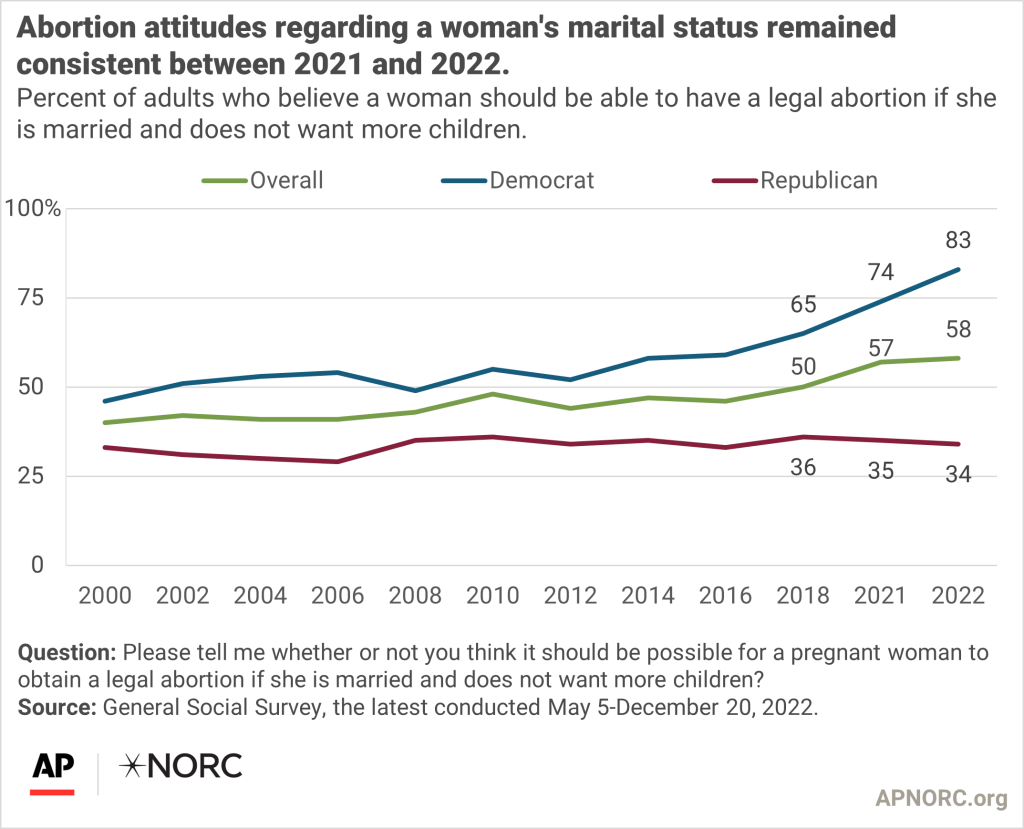
A similar trend can be observed when it comes to whether or not single women who do not want more children should be allowed to obtain a legal abortion. While overall attitudes have remained consistent between 2021 and 2022, the partisan gap widened, largely due to an increase in support among Democrats.
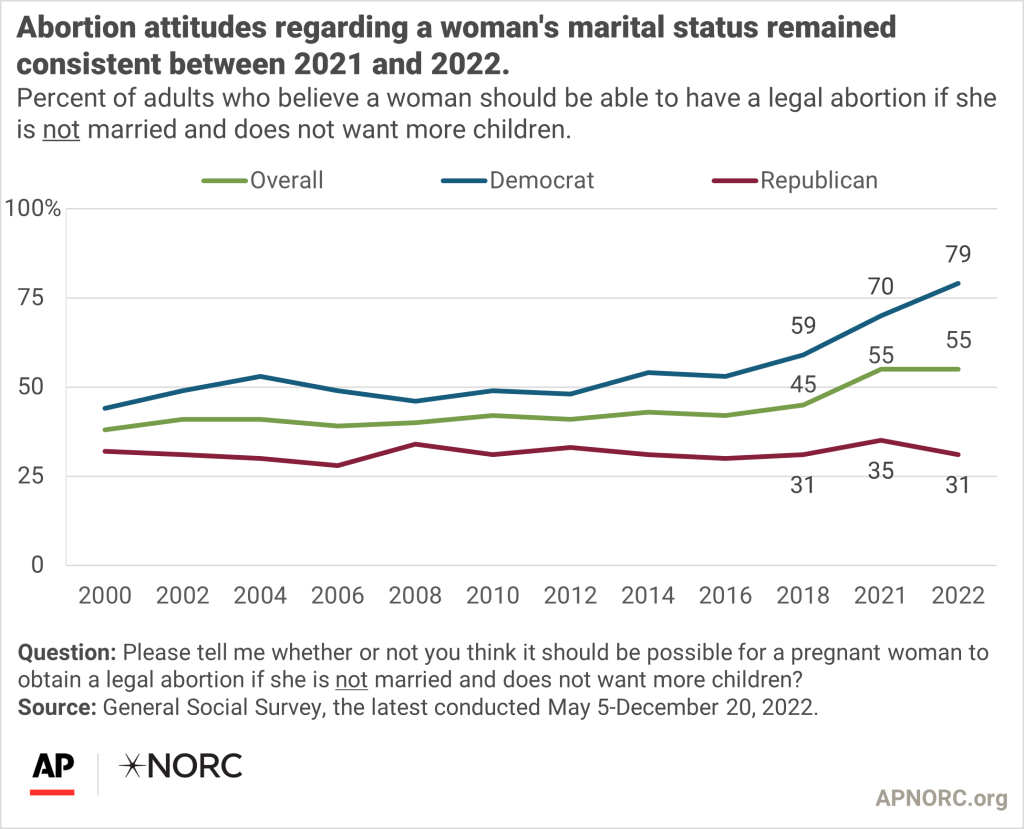
The partisan gap in support for legal abortion in low income families also widened from a 28-point gap in 2018 to 50 percentage points in 2022.
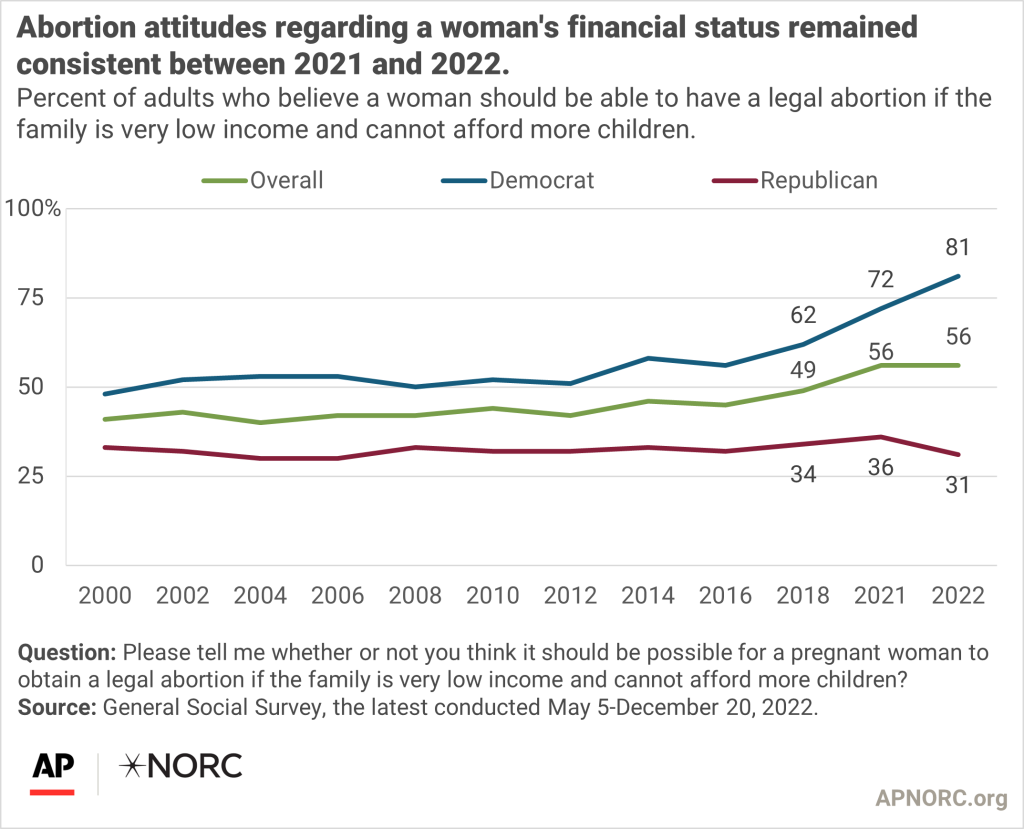
Support for legal abortion if the pregnancy endangers the mother’s health, if there is a strong chance of a serious defect in the baby, and if the pregnancv was a result of rape remained high and consistent with previous years. Democrats were more likely to support abortion in each of these scenarios compared to Republicans, and the partisan gap remained consistent between 2021 and 2022.
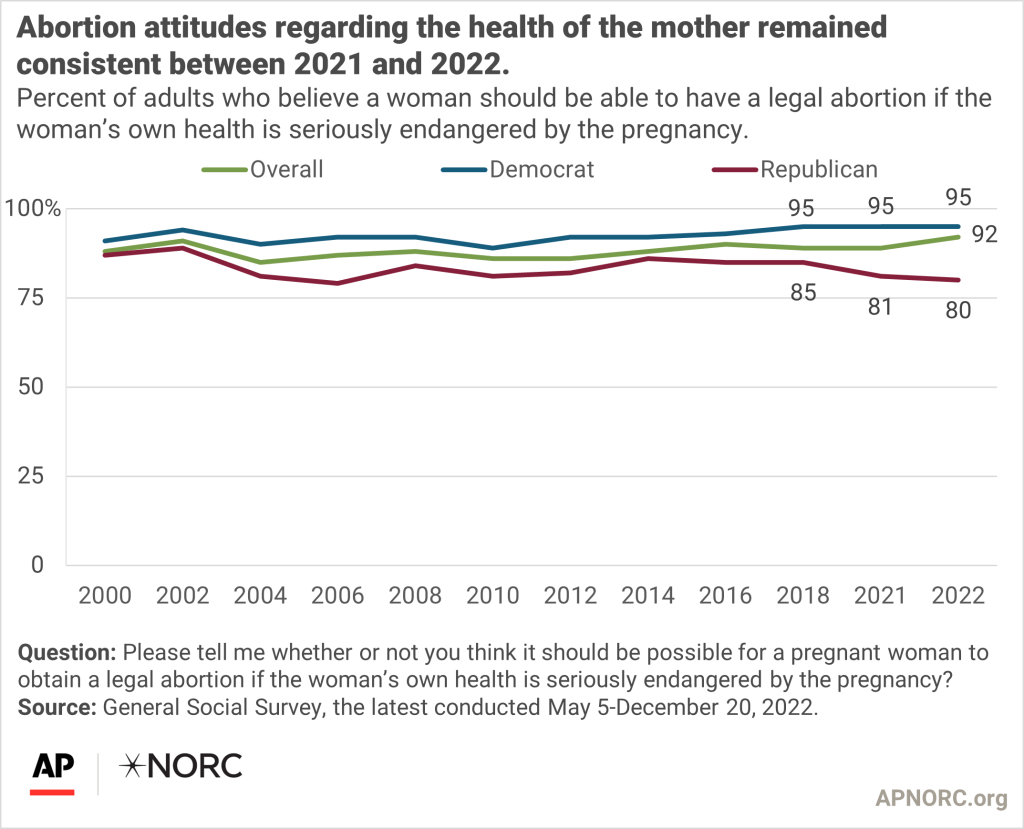
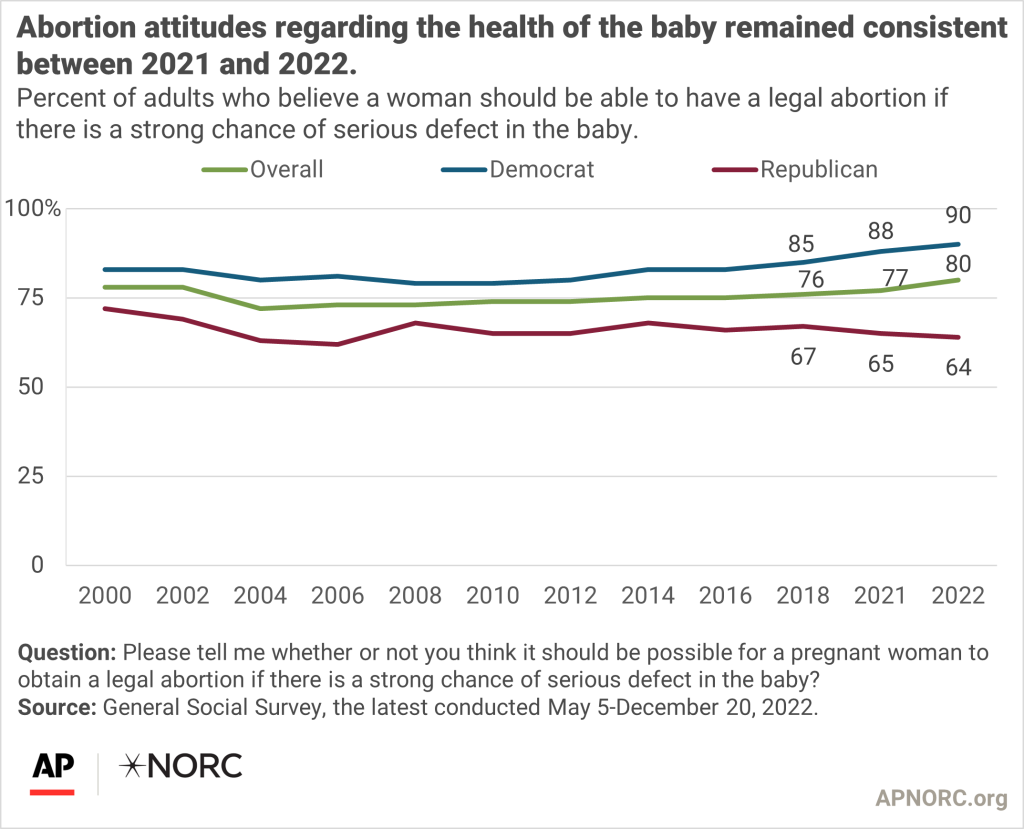
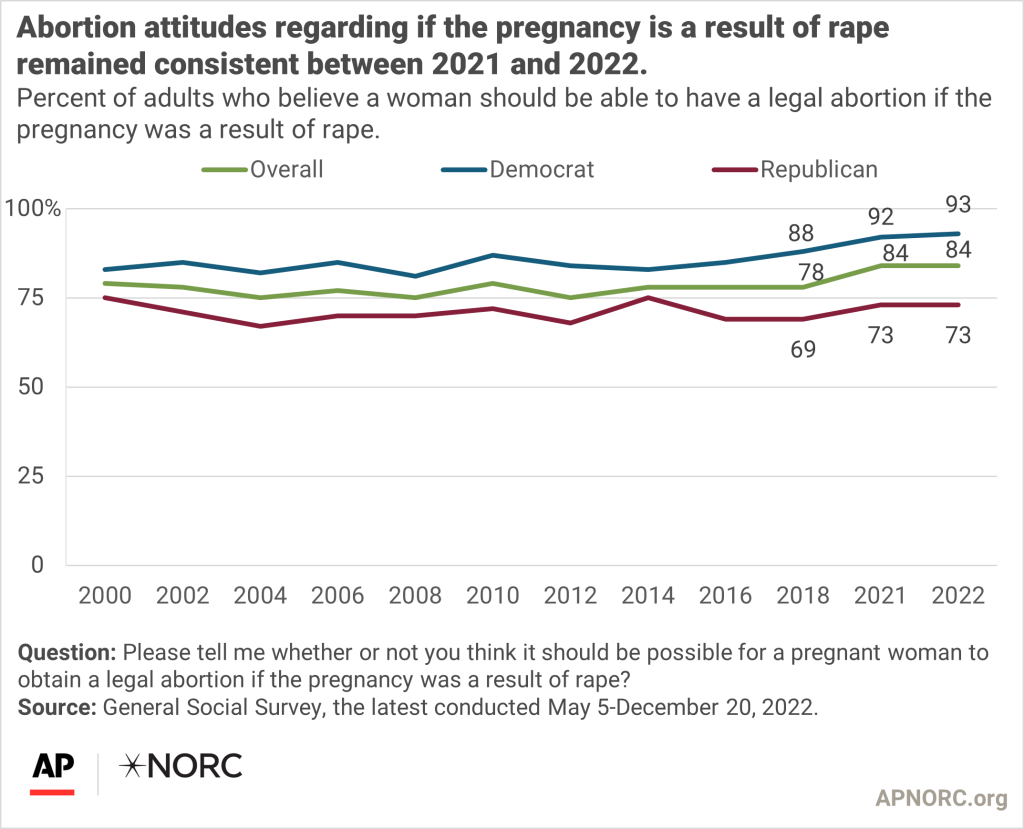
The General Social Survey has been conducted since 1972 by NORC at the University of Chicago. Sample sizes for each year’s survey vary from about 1,500 to about 4,000 adults, with margins of error falling between plus or minus 2 percentage points and plus or minus 3.1 percentage points. The most recent survey was conducted May 5 through December 20, 2022, and includes interviews with 3,544 American adults. Results for the full sample have a margin of error of plus or minus 3.0 percentage points. More information about the 2022 GSS is available here: https://gss.norc.org/Get-The-Data
Changes in opinions, attitudes, and behaviors observed in 2021 relative to historical trends may be due to actual change in the concept over time and/or may have resulted from methodological changes made to the survey methodology during the COVID-19 global pandemic. In 2022, the GSS used a mixed mode approach with both interviewer administered in-person and self-administered web interviewing. The GSS recalculated some weights from past years (see GSS methodology for additional information). These new weights were released in the 2022 data causing some statistics from prior years to change minimally. Data reported prior to the 2022 release may differ slightly.








